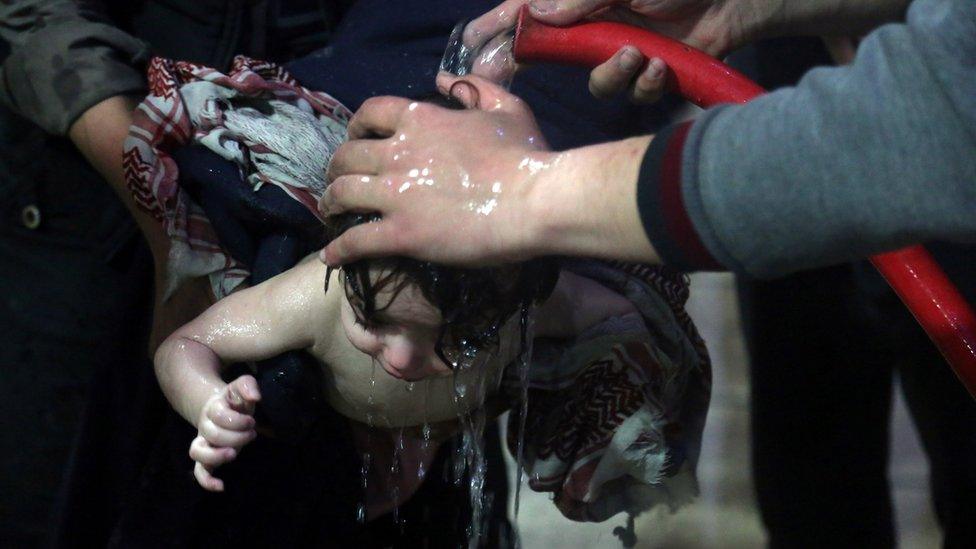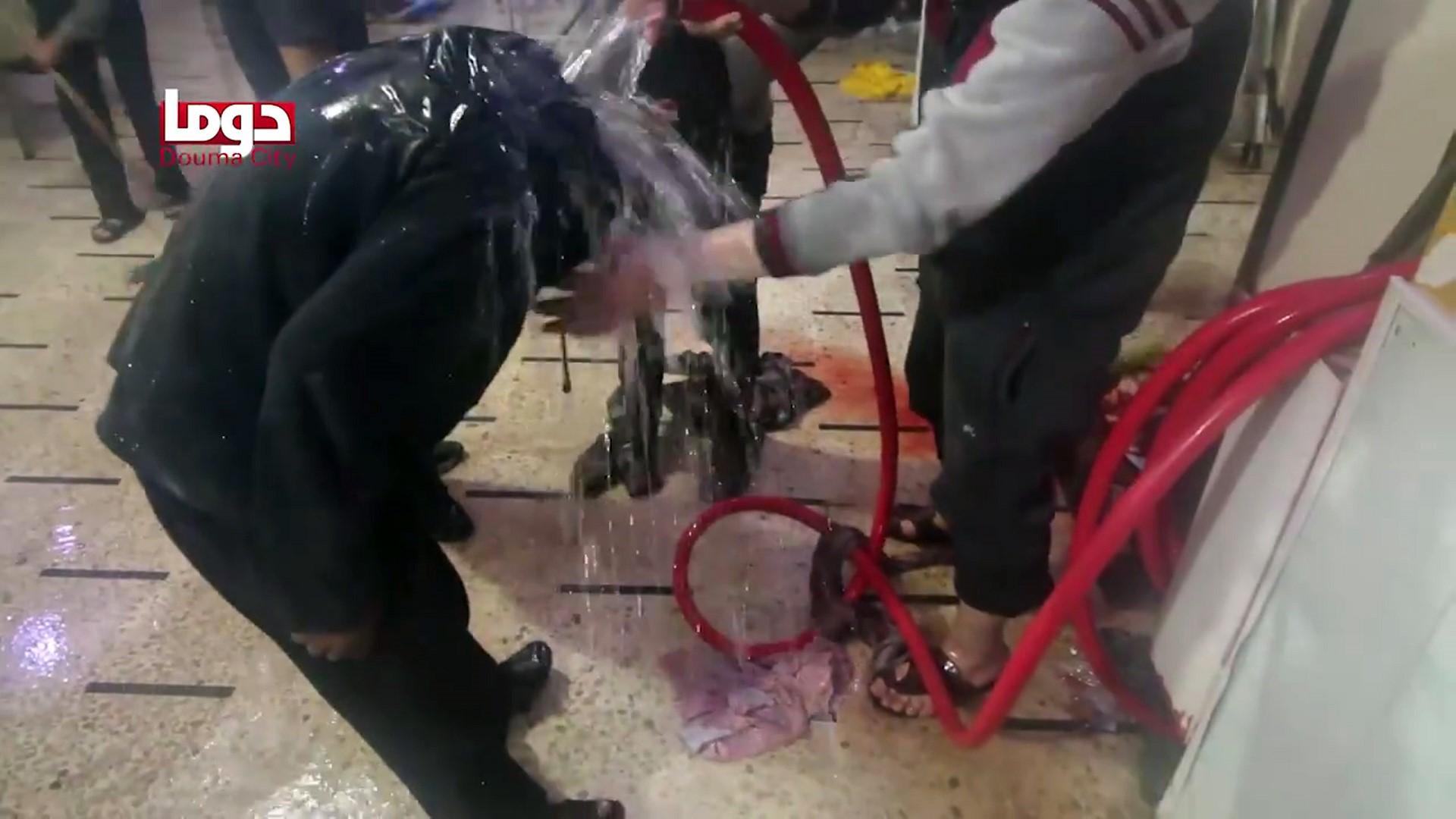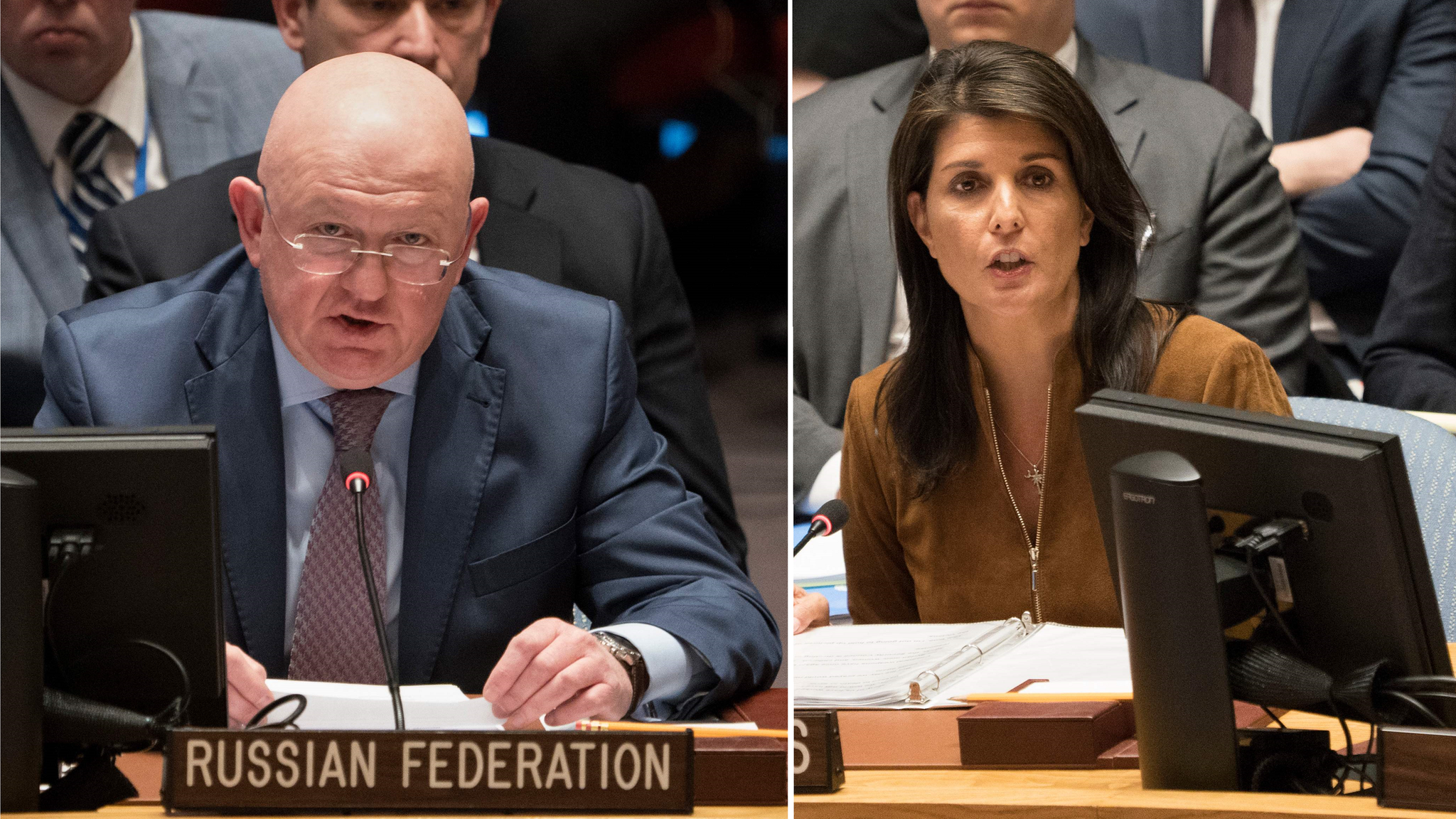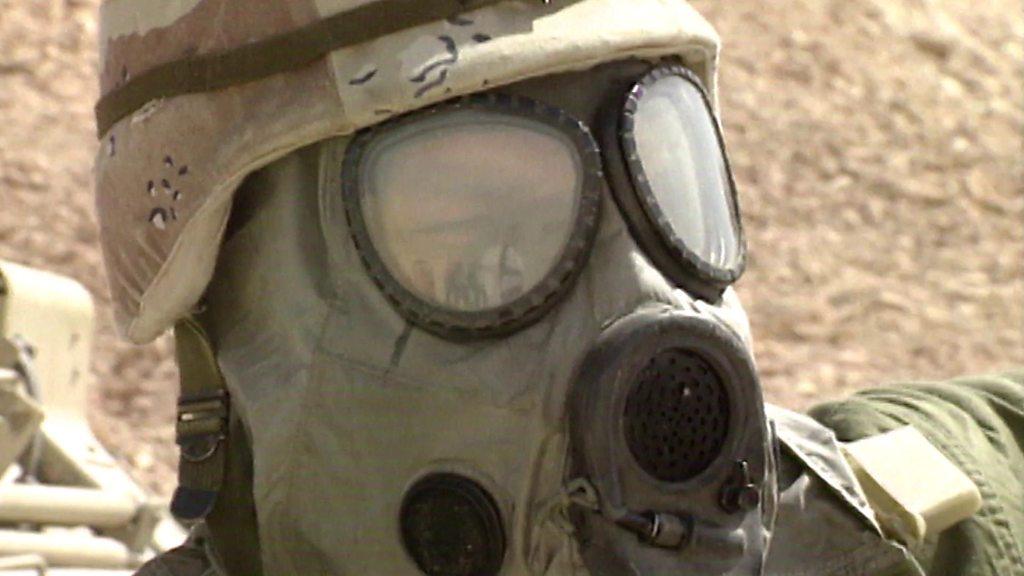OPCW finds ‘chlorinated compounds’ in Syria’s Douma
- Published

Patients, including children, were hosed down with water to remove chemicals on their skin
A report by the chemical weapons watchdog suggests chlorine may have been used in April's suspected chemical attack on the Syrian town of Douma.
The interim report , externalby the Organization for the Prohibition of Chemical Weapons (OPCW) said "various chlorinated organic chemicals" had been found (in samples taken from two locations), but there was no evidence of nerve agents.
Medics say dozens of civilians were killed in the alleged attack by government forces on the rebel-held town in the Eastern Ghouta region near Damascus.
The Syrian government denies carrying out any chemical weapons attacks.
Following the Douma incident, US, British and French warplanes launched strikes against government facilities they said were involved in chemical weapons development and storage.
The OPCW was recently given new powers by member states to name those responsible for using chemical weapons. Its investigation into what happened in Douma is continuing.
Medics in Douma reported on 7 April that more than 500 patients had been brought to medical facilities with symptoms suggesting exposure to a chemical agent.
Rescue workers also reported a strong smell of chlorine in the air following air strikes that targeted two locations in Douma.
The OPCW sent a Fact-Finding Mission team to Douma about a week later, but inspectors did not visit any sites of interest until 21 April.
"Along with explosive residues, various chlorinated organic chemicals were found in samples from two sites," the preliminary report said.
"Work by the team to establish the significance of these results is on-going. The FFM team will continue its work to draw final conclusions."
The report said industrial gas cylinders were present at the two sites where chlorinated organic chemicals were detected.
Following the alleged attack, a UN investigation said evidence pointed to the use of chlorine but that some people had exhibited symptoms more consistent with exposure to a nerve agent.
The OPCW report, however, said that "no organophosphorous nerve agents or their degradation products were detected" at the sites.
The five-year siege of the Eastern Ghouta, an agricultural region outside the capital where at least 265,000 civilians lived, was the longest in modern history.
It came to an end in April, after a two-month offensive by pro-government forces, backed by Russian air strikes, that decimated homes, businesses and hospitals and reportedly left more than 1,700 men, women and children dead.

Correction 23 July 2018: An earlier version of this article inaccurately summarised the findings of the OPCW's report. It has since been amended to clarify that their report suggests that chlorine may have been used in April's suspected chemical attack in Douma.
Correction 4 October 2018: The article's headline has been amended to correct a misleading impression about the conclusions of the OPCW report, following a complaint to the BBC's Executive Complaints Unit.
Clarification 12 October 2018: Following a further investigation, the BBC's Executive Complaints Unit found the original headline to the article was materially inaccurate. This was a separate finding to the investigation which to led to the correction posted on 4 October.
- Published10 April 2018

- Published9 April 2018

- Published9 April 2018

- Published8 April 2018

- Published9 April 2018

- Published9 April 2018

- Published2 May 2023
